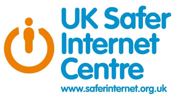DGSB is our school and we want it to be a safe place for everybody who works or studies here. You can read our current Child Protection Policy by clicking here.
Staff at DGSB will do everything they can to make sure you are protected and happy. This document is to help you understand how we aim to keep you safe in school and to help you decide what could be a “problem” and whom you should talk to. All staff at school will do their utmost to:
- Protect you from harm
- Make sure nothing stops you being healthy or developing properly
- Make sure you are safely looked after
- Make sure you have the best life chances and can grow up happy and successful.
Staff will make the school a friendly, welcoming and supportive place to spend time in – somewhere you want to be; will be there for you to talk to if you need to and know who to ask for help; will give you safe messages during your time in school to help you learn how to look after yourself both online and in the real world, and will have all the right rules in place to look after you.
If you feel you need to talk to somebody - whether because of things that are going on at home, at school, or because of something somebody has said or done to you at any point - please talk to us. We will always listen and do our best to help you.
Click here for a Mental Health Support Guide
Staying Safe
What is abuse?
When someone hurts you, it can be called abuse. This is when someone does something to you that is harmful, unpleasant or painful such as:
- If someone deliberately hits you, hurts you, injures you or humiliates you in different ways
- If someone regularly says or does something that makes you feel bad about yourself or hurts your feelings which makes you feel scared, sad, upset or frightened
- If someone shouts, threatens, hits or hurts someone you love whilst you are around which makes you scared, unhappy or worried.
- If someone doesn’t take proper care of you so you feel abandoned, lonely or neglected. You might not be able to eat or wash regularly, or you might not be able to come to school every day or on time
- If someone touches you in a way that you don’t like, or which makes you feel uncomfortable or worried
- If someone makes you look at things which make you feel ashamed, embarrassed, uncomfortable or guilty
- They may ask you to keep it a secret or give you presents
Remember: abuse is never OK and if you are being or have been abused it is not your fault. You must always tell someone and they will help it to stop.
In and out of school
All of the staff at DGSB will aim to make sure the building is safe for you to learn in and spend time in. We will make sure that we know who everyone is in the school by asking visitors to sign in at reception. You will always know who a visitor to the school is because they will have signed in at reception and will display a lanyard which will be around the visitor’s neck. The buildings, outside areas and fields will be as safe as they can be for you so that you don’t hurt yourself, although accidents can happen if you are not careful! If the fire alarm goes off you should know what to do and where to go. When you leave school to go on a trip, the staff will make sure they can keep you safe.
What we will do:
At DGSB we will help you to keep safe in the following ways:
- We will do our best to spot if there is a problem. All of the staff in the school have had training in this
- We will work with other people (including parents and carers) to help protect you and solve any problems you may have
- We will always listen to you if you want to talk to us and need our help. We will always take you seriously
- We will support and encourage you and will respect your wishes and views, and will provide information and advice whenever appropriate or necessary
- At DGSB you can talk to any member of staff, but you should know that there are a number of staff who are responsible for making sure you are safe and well cared for.
Who at DGSB can help you?
- Mr Wakefield (Designated Safeguarding Lead)
- Any member of the Senior Leadership Group (Headteacher, Deputy Headteachers, Assistant Headteachers)
- Your form tutor
- Your Director of Key Stage
- Student Support Managers
- Student Welfare Officers
- School Counsellors
Other Organisations who can help you - click here
Staying Safe Online
At DGSB we believe that technology should be embedded throughout the school and that we should utilise both existing and emerging technologies as a means to prepare our students for the digital age. Learning to use online resources appropriately and effectively is an essential part of each student’s education.
However, there are a number of risks associated with going online – some are general and some more specific. There are a number of sensible measures which you need to take in order to protect yourself against these risks, including from viruses and ransomware attacks through to identity fraud.
Please read our Online Safety Policy, found here: DGSB Online Safety Policy
As a school, we are very aware of the importance of guiding students in their use of new media and technology. We are committed to ensuring that we share information and good practice on how to manage safe use of the internet and technology with students and their parents. Online safety is taught to all pupils in PSHE, Tutor time and computing lessons explaining and demonstrating how to stay safe and behave appropriately online. We also do assemblies on online safety throughout the year for all students.
We would like to encourage parents/ carers to speak to their children about personal safety awareness online and the websites below provide useful information.
If you have any concerns about online safety then please do report you concerns to the school via the student welfare officer for the appropriate key stage. You may also wish to refer to the school’s online safety policy for additional information.
Please click on the useful links below for further information regarding Online Safety.
 |
 |
 |
|
 |
 |
 |
 |
Taking Precautions & Staying Safe
This can be as simple as using strong passwords, but not making them too difficult to remember. Ensuring you have adequate and up-to-date anti-virus/anti-spyware and firewall software will also help to mitigate some of the risks. Learning how to distinguish between genuine and fraudulent websites and emails is also very important as visiting fraudulent sites and opening infected emails can leave you wide open to attack.
There are some helpful videos on the Metropolitan Police website giving advice about how to stay safe online: https://www.met.police.uk/littlemedia
For advice and tips on which websites and apps might be harmful or leave you vulnerable to malware and spyware, you can visit GetSafeOnline.
Content Filtering
At DGSB the internet access that we provide is filtered and monitored by Smoothwall to ensure the school can meet its duty of care to all students and staff by ensuring that access to inappropriate material is blocked.
Filtering is used to block a number of categories including inappropriate or illegal content, restrict security breaches and maintain sufficient bandwidth for all users. Sites are categorised by an industry-leading package with local administration to allow us to adjust filters for age-appropriate content (e.g. Sixth Form students have different filtering rules to lower school students). Staff are also subject to filtering and monitoring.
System Monitoring
We are committed to providing a safe and secure environment for our staff and students and therefore we monitor the activity of all accounts within our school network in order to meet our safeguarding obligations. Internally, we use Smoothwall Monitor which provides classroom management controls as well as e-Safety monitoring and reporting.
In addition to being able to monitor activity in real-time, e-Safety reports are generated and reviewed on a regular basis with any concerns being raised with the Designated Safeguarding Officer and followed up appropriately.




